When someone dies unexpectedly, whether from an accident, suicide, or crime, the cleanup becomes an immediate problem most people aren’t ready for. Property managers may worry about tenant safety or property value. Families are often overwhelmed by shock and grief. And law enforcement usually isn’t responsible for anything beyond the investigation.
So who handles what’s left, and how much does it actually cost?
If you’re facing this now or preparing for the possibility, here’s what to know about biohazard cleanup costs in California.
Average Cost for Biohazard Cleanup
That range depends on the scene. A single room with a small amount of blood might be on the lower end. If someone passed away and wasn’t found for days, costs can climb over $10,000. In these cases, cleaners often have to remove soaked flooring, damaged furniture, or drywall. It’s not just about cleaning, it’s about making sure the home is safe to live in again.
If you need help right away with residential biohazard cleanup or crime scene cleanup san francisco, speak with a local biohazard company that knows how to handle these scenes safely and legally.
What Affects the Price
A few key things make one job more expensive than another:
- How much area is affected: A hallway is cheaper than a whole house.
- How long before discovery: Fluids spread fast, especially after several days.
- Type of surface: Hard floors are easier to clean than carpet or wood.
- What’s involved: Blood, feces, urine, and sharps each add more steps.
- Disposal needs: Some items have to be cut out, bagged, and hauled away.
Most of the cost comes from labor. These crews wear full protective suits, follow state and federal regulations, and often work in tough conditions for hours at a time. If you’re comparing services, look for biohazard house cleaning and biohazard cleaning service teams that explain their costs clearly, before you commit.
Who Pays for Cleanup
In many cases, homeowners insurance covers biohazard cleanup.
This applies to things like suicides, unattended deaths, and some violent crimes. If the person who passed away was a tenant, landlord insurance may apply. California’s Victim Compensation Board can also help in certain situations. Still, don’t assume everything’s covered. Some policies only pay a portion. Others may try to classify it as standard cleaning. That’s why documentation is key, photos, reports, and receipts help support your claim.
Before you pay out of pocket, ask if your insurer covers crime scene cleanup service or biohazard house cleaning in your area.
Why You Shouldn’t Do It Yourself
Biohazard scenes are not just difficult, they’re dangerous.
Blood and body fluids can carry serious infections. Without proper gear and cleaning agents, you risk exposure. Even if you manage to clean what you can see, bacteria and viruses can remain in flooring, cracks, and porous materials. DIY attempts can also lead to legal trouble. California has rules about how biohazardous waste is handled and where it goes. If you throw it out incorrectly, you could be fined.
Skip the risk. Let trained professionals handle blood cleanup san francisco and human waste cleaning services using the right safety procedures.
How Long the Process Takes
Cleanups usually take between a few hours to two full days.
Smaller jobs can be done in one visit. Larger scenes, especially those involving decomposition or hoarding, may take multiple days. Crews often work quietly and with care to limit disruption.
Acting quickly not only helps with odor and bacteria, it’s also one less thing for families or property owners to carry emotionally.
If time is a factor, look for local teams that offer professional hoarding cleanup and same-day crime scene cleanup san francisco with a clear timeline.
Talk to Someone Who Knows What to Do
If you’re in the middle of a crisis, you don’t need more stress. Speak with a licensed biohazard company that provides biohazard house cleaning, residential biohazard cleanup, crime scene cleanup service, and emergency response across California.
They’ll give you straight answers about cost, cleanup, and what your insurance might cover, so you can focus on what matters most.






